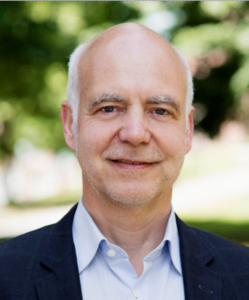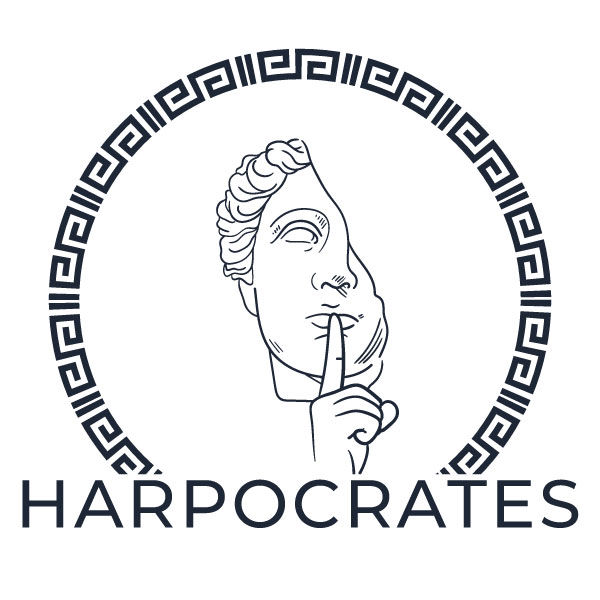Interview with Dr Thomas Penzel
6.4.2023 16:02
 Sleep disorders are often difficult to diagnose and treat, and require the expertise of sleep medicine specialists. However, sharing sensitive patient data between sleep centers can pose a challenge in terms of data privacy and protection. The HARPOCRATES project aims to address this issue by developing a data encryption technology that allows secure sharing and analysis of sleep recordings between multiple sleep medicine centers across different countries.
Sleep disorders are often difficult to diagnose and treat, and require the expertise of sleep medicine specialists. However, sharing sensitive patient data between sleep centers can pose a challenge in terms of data privacy and protection. The HARPOCRATES project aims to address this issue by developing a data encryption technology that allows secure sharing and analysis of sleep recordings between multiple sleep medicine centers across different countries.
One of the parties in the demonstrator of the advanced security solutions in the HARPOCRATES project is The Charite University Hospital, specifically the interdisciplinary Sleep Medicine Center. Charite University Hospital is one of the largest university hospitals in Europe with a rich history of over 300 years. Sleep medicine is an interdisciplinary subject where many different data are collected. Different data are in-hospital sleep recordings with biosignals, video recordings, home sleep recordings, textual information and new wearable and smartphone sleep recordings. The aim is to merge and evaluate data in a secure and transparent way.
Thomas Penzel, the scientific chair of the sleep medicine center at Charite University Hospital and the president of the German Sleep Society, shared his thoughts on how the advanced cyber security solutions developed in HARPOCRATES project will have the potential benefits for future collaboration of multiple sleep medicine centers, ensuring that data from many different sources are collected and exchanged for a patient oriented diagnosis and tailored therapy.
What benefits do you see in collaborating with multiple sleep medicine centers across different countries?
We need to transmit sleep recordings and sleep data between centers and countries to discuss second medical opinions and for the purpose of medical quality control. Much of the sleep analysis is based on visual evaluation of biosignals and therefore a second expert evaluation is often needed.
As a sleep medicine center, how important is the protection of sensitive patient data to utilize machine learning?
Sleep disorders are still not very popular. Therefore they are treated as a medical secret. Some sleep disorders like sleep walking or violent behavior during sleep are subject to forensic sleep medicine and require to be very secret.
How do you see data encryption being useful in protecting patient privacy and ensuring compliance with data protection regulations such as the GDPR?
To have the sleep recordings being encrypted is very important for protecting patient privacy. Some of the signals are patients’ characteristics and can be used for personal identification, like a fingerprint. Therefore they are sensitive.
In your opinion, what challenges may arise when implementing data encryption for sleep recordings?
A typical sleep recording consists of 12 or more signals recorded for 8 to 10 hours and each signal has a sampling rate of 200 Hz. This is usually around 200 MByte of data. This is a lot of data to be encrypted and I see a challenge in computational power requirements. We do record video of the sleeping person as well. This video encryption I see as an additional challenge, which might go beyond our project aims.
How do you envision the usability and practicality of a solution that allows for secure sharing and analysis of encrypted sleep recordings?
If not too much computational power is required, the secure data sharing will be implemented in all sleep recording machines which allow immediate sharing of data with other sleep centers.
From a clinical perspective, what features would you like to see in a user-friendly interface that would facilitate the joint exploitation of securely shared sleep recording data?
A user-friendly interface should allow us to see the signals after a formal access control. It should allow you to see the sleep staging, all the annotations like time when lights are switched off and switched on, the number of sleep stage shifts and awakenings, the amount of deep sleep and dream sleep in minutes and percentages, the latencies to deep sleep and dream sleep.
In your experience, how can machine learning be used to improve the diagnosis and treatment of sleep disorders?
Machine learning can help to do the very time consuming sleep scoring. So it can help to identify wake, light sleep, deep sleep, dream sleep, it can help to identify leg movements, apnea, and hypopnea events, snoring events, speaking during sleep and other unusual events and sequences.
What potential ethical considerations should be taken into account when sharing and analyzing sensitive patient data in sleep medicine?
The ethical considerations must respect privacy and security, and it needs to be traced who had access to the data.
How do you see the future of machine learning and data sharing in the field of sleep medicine?
I do see a great future for machine learning, because the visual annotation of sleep recordings to detect and annotate the above mentioned events is very time consuming and requires very skilled people. The people must have a special examination passed to become a sleep scorer.
How do you plan to incorporate the results and insights gained from this demonstrator project into your clinical practice and research?
We plan to incorporate the results in clinical practice in our sleep center and in other sleep centers. The success of this needs to be published and can then be advertised in journal publications and may finally be included in medical guidelines.
The HARPOCRATES project has the potential to revolutionize the field of sleep medicine research and practice, enabling secure sharing and analysis of encrypted sleep recordings between multiple centers and countries. While challenges may arise in implementing data encryption for sleep recordings, the benefits of this technology are clear, and it may ultimately help to improve the diagnosis and treatment of sleep disorders worldwide. The success of the HARPOCRATES project could have far-reaching implications for the broader medical research community, as it demonstrates the feasibility and importance of balancing data privacy and sharing in the era of advanced machine learning techniques.
